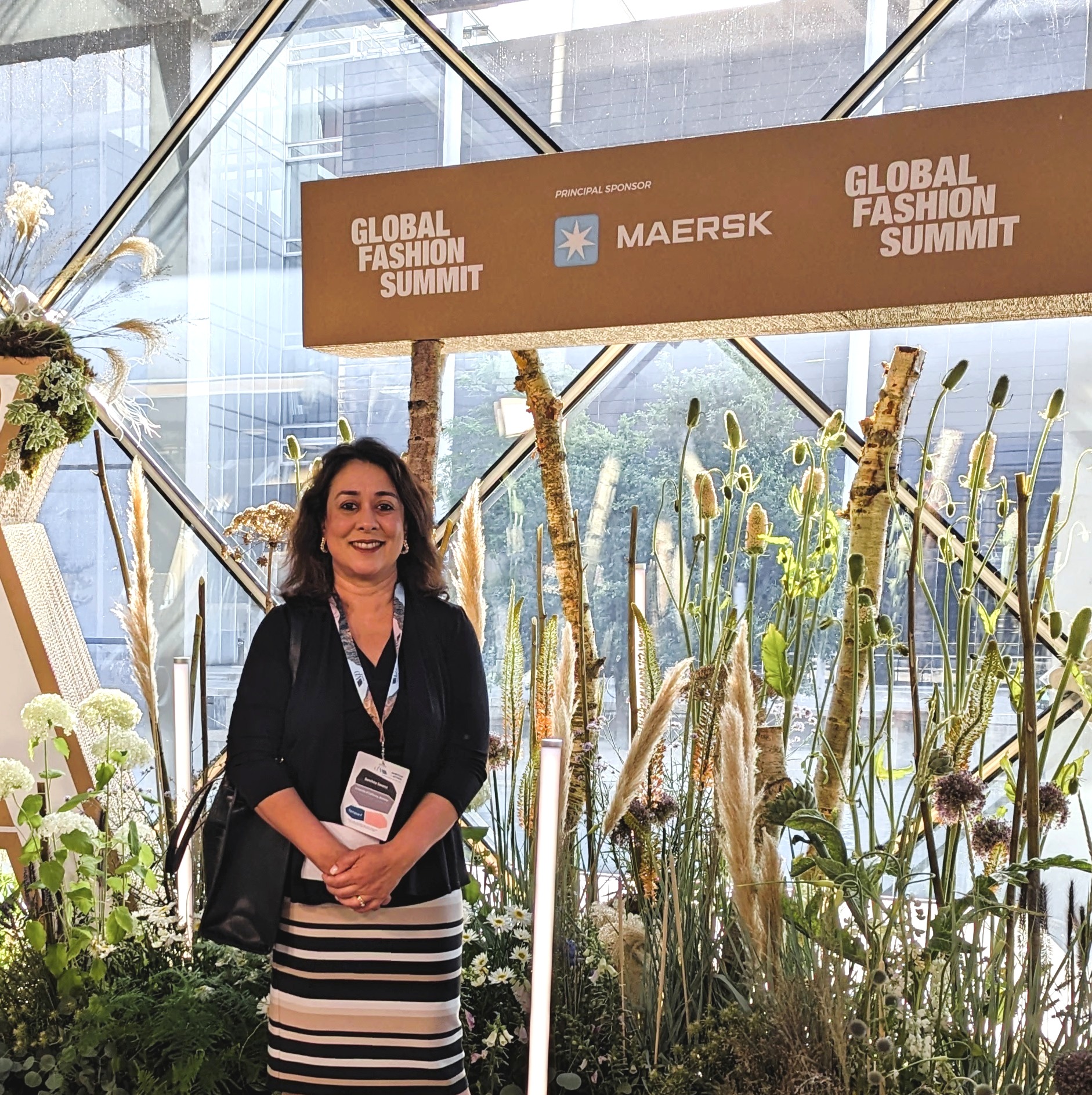All Voices Need to be Heard at the Global Fashion Summit
July 6, 2023
Blogs
By Sanchita Banerjee Saxena
Last week, I attended the Global Fashion Summit in Copenhagen. Touted as the leading international forum for sustainability in fashion, this year’s theme, “Ambition to Action,” highlighted practical solutions to reach net zero emissions by 2030 and to create a sustainable industry overall. The Summit focused on five areas needed to achieve these goals, including 1) Creating alliances, including global partnerships with all stakeholders; 2) Leading by example and sharing learnings; 3) Policy and regulation; 4) Innovation at every level of the value chain; and 5) Progress over perfection. Several speakers emphasized the necessity of long-term, scalable solutions, integrating sustainability starting from the fiber itself, and new business models that de-couple growth from sustainability.
Since 2009, the Summit has brought together global industry leadership, change makers and thinkers to accelerate the transition to a more sustainable fashion industry. This year was no exception as attendees heard from 137 speakers from leading global companies and organizations including LVMH Group, Maersk, Chloé, GANNI, Nike, Inditex, Pandora, PVH Corp, PUMA, the United Nations Environment Programme, the European Environment Agency, the Future Earth Foundation, The Or Foundation and many more.
While the line up included many of these key players, I was disappointed that there were few voices from the global south, countries where the goods are actually produced. There was little representation from manufacturers, farmers, mills, and workers. This seems particularly at odds with the larger goals of the Summit, because as Seema Joshi, Fashion Campaigns Director for Stand.earth pointed out, “Brands export profits and product, but leave the harm to the environment. It is not a priority of brands to decarbonize and achieve net zero.” So how can we have these conversations without many of the key stakeholders involved?
For me, the highlights came from the few representatives from the global south who gave audience members more of a ‘reality check.’ Some key takeaways included:
- Many organizations have had a history of engaging in sustainable practices for generations, but they have not earned the “sustainable label.” For example, Omoyemi Akerele, Founder & CEO of Style House Files, Lagos Fashion Week mentioned that mending clothes is an essential part of the culture and clothes are repaired many times and then passed down through generations before they are simply discarded. This is a common practice in many societies, but it is not referred to as “circularity.” Many suppliers are also pursuing innovations related to water conservation and waste management. We need to learn about these practices and take them seriously if we are going to be able to make a significant difference. As Akerele said emphatically, “Every conversation matters.”
- We need to think through our strategies carefully when environmental sustainability could lead to a negative impact on livelihoods. Vidiya Amrit Khan, Deputy Managing Director, Desh Group of Companies in Bangladesh spoke about the system that already exists to recycle textile waste in Bangladesh. There is an entire industry, she said, which provides employment to thousands of people. This on the ground reality needs to be considered when brands and retailers promote alternative recycling methods. We need to ask ourselves what does a just transition look like and what factors might impede this transition?
- Solutions cannot be from a “one size fits all” approach, but need to be tailored to the local context. We need to talk to those who are the most affected, like workers and farmers. Professor Hakan Karaosman from Cardiff University said in his keynote address, “Brands are divorced from [the needs of] workers. Conversations [between brands and suppliers] should be based on trust instead of fear and punishment.” The role of brands should be to provide tools to their suppliers so they are incentivized to find and implement sustainable solutions.
- Metrics and good data, though more available on the environmental side, is seriously lacking on the social side. There are also enormous data gaps beyond Tier 1, where many of the serious problems lie. We need better ways to collect good data on social indicators, and brands also need to standardize their requirements so as not to create an unrealistic burden further down the chain.
As Michael Bride from PVH Corp said, “We are guests in these sourcing countries…we need local people at the table.” Going forward, I would encourage the GFS to not just invite a few representatives from the global south, but seriously engage with them and support their efforts, keeping their constraints in mind. Ian Ponce, Programme Officer of Global Climate Action, UNFCCC stated (to a wide round of applause from the audience), “I would love to see a GFS in Pakistan or Bangladesh, were we bring people from the global north to see solutions [rooted in the global south].”
We need to expand this from a primarily Northern conversation to one where we involve all voices in order to truly move forward from ambition to action.
Article One helps companies to connect with all stakeholders to ensure responsible supply chains. For more information, please contact hello@articleoneadvisors.com
Vogue Business recently wrote about the Summit and interviewed Sanchita. Please note that the article, available here, requires readers to create an account to access.
